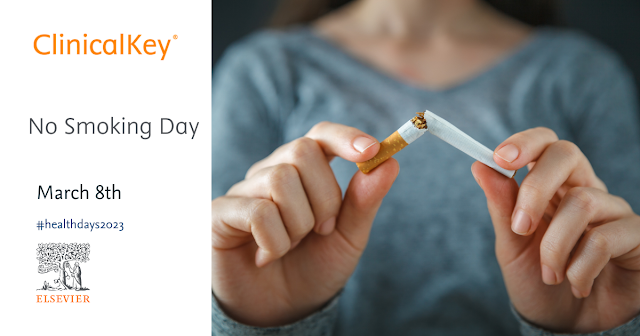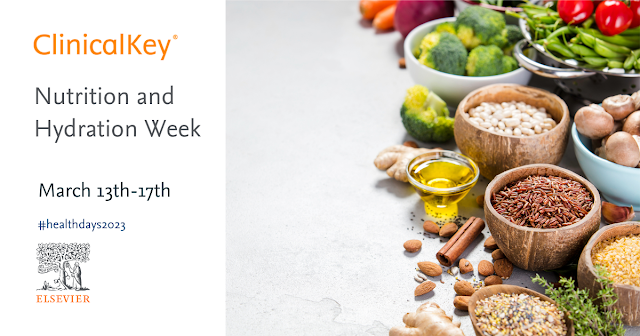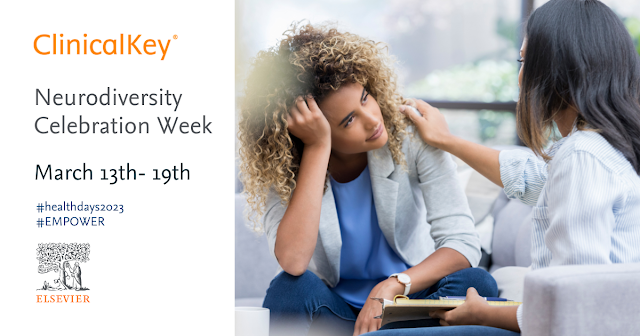What’s happening on Clinical Key in March?
March 8th – No Smoking Day
Join us commemorating #NoSmokingDay by reviewing and
applying NICE Guideline NG209: Tobacco: preventing uptake, promoting
quitting and treating dependence. Access this
and other guidelines through Clinical Key.
March 13th to 17th – Nutrition and Hydration Week
Are you aware of the 9 Principles Framework used to
develop a healthy behavioral change to support healthy eating? You can read
more about it on Development of eHealth-Based Behavior Change
Support for Young Adults Using the Nine Principles Framework article
included in the Journal of Nutrition Education and Behavior, part of Clinical Key.
March 20th – World Oral Health Day
Join
Clinical Key supporting International #WorldOralHealthDay through the use of Preventive Dental Care, Adult Patient Education handout. It’s
available in +15 different languages!
Make
healthcare truly inclusive- EMPOWER recommends:
March 13th to 19th - Neurodiversity celebration week
Neurodiversity
describes the diversity in the human brain that shapes the interactions and
experiences with the world in many different ways. As WHO indicates, about 1
out of 100 children has autism; which is only one condition commemorated as
neurodiverse during this week. We invite you to have a closer look at the
article The neurodiversity concept: is it helpful for
clinicians and scientists? from The Lancet Psychiatry.
Access Clinical Key
Clinical Key is
available to UHNM staff via OpenAthens login.
Find out more
about the features available to you on Clinical Key from our sway Get Started with Clinical Key.




Comments
Post a Comment